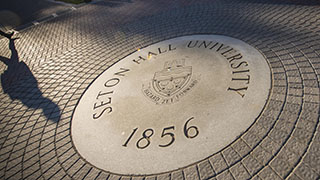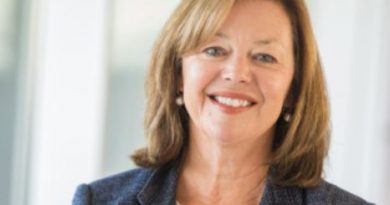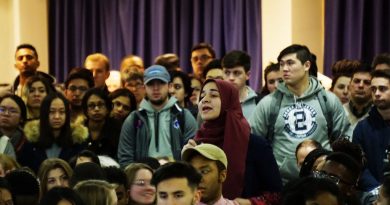School of Diplomacy Hosts Leadership Exchange Forum
Alexander Lee
Staff Writer
On April 20, Seton Hall University’s (SHU) School of Diplomacy and International Relations, along with the Global Current, Girl Up, the Stillman Exchange, Seton Hall United Nations Association, SHU Women in Diplomacy, and other organizations hosted Gina Bennet, Troy Wolf, and Gabrielle Sierra on a panel to discuss the hallmarks of a good modern leader and to offer advice to students entering the workforce.
Gina Bennet is a former Central Intelligence Agency (CIA) officer with thirty-four years of experience. She was on the team that helped catch Osama Bin Laden. She is currently a professor at the University of Georgetown where she teaches two courses, Ethics in Intelligence & National Security and Hunter Gatherer National Security. Troy Wolfe is the Senior Director for the Partnerships and Special Initiatives at the United Nations Foundation. He works closely with the United Nations (UN) and local governments to support the more than 200 chapters of the United Nations Association (UNA). He is a former Peace Corps volunteer who served in Suriname. Gabrielle Sierra is the Host of the Podcast “Why it Matters” and the Director of Podcasting at the Council of Foreign Relations (CFR).
The panelists were given a starting question and then permitted to simply allow the conversation to carry itself. The first question was centered around diversity: the speakers were asked how the firms and different industries they worked within tackle attempting to create a more diverse and more inclusive workplace?
Wolfe recognized the lack of diversity within the organization in his experience within the UN in 2020. The UNA established a task force to work towards increasing diversity, which he leads. This task force is designed to examine the diversity levels of different UNA chapters. Wolfe also stresses the impact that “woke culture” has on diversity and explained some of his efforts to increase diversity.
In Bennet’s opinion, and in the opinion of much of the intelligence community, diversity is practically a requirement for an effective intelligence operation. She is of the opinion that the CIA is the best, and worst, example of diversity. Within the intelligence community, diversity can provide multiple perspectives and provide experience in a wide array of areas, Bennet explains. The mission cannot be completed successfully if everyone thinks similarly.
Sierra explained that diversity is important as it can showcase just how slow government and international relations can truly be. CFR is as slow as most institutions, she stated. Although it is possible for the organization to make changes, she believes that the changes come slowly and with time.
The next issue tackled was about how someone can affect change and adaptability within an organization. Wolfe, stressing again his point made during his explanation of diversity within government organizations, expressed the importance of diversity, especially as it affects the change within an organization. Wolfe reminded the audience that it is not always possible for each person’s voice to be heard. Once one has access to “the table” it is important to not get intimidated and to know when to push versus when to back away.
Bennet’s argued that it is important to set variables in place before attempting to enact change. “Prepping the battlespace,” a phrase coined within the intelligence community, is vital before someone attempts to bring forth progress. She stresses that one should make sure that all aspects are set in place before that person attempts to enact change. Bennet stressed the importance of familiarizing others with ideas, and even doing so slowly. She also believes that influence is a major driver in today’s world, and that influence can create shared values and ideas, creating a strong bond, and in turn, bringing forth progress.
Sierra, echoing both Wolfe and Bennet, added that the ability to know when to offer advice versus when the advice becomes criticism is extremely important. She noted that it is important to recognize that organizations may not always be open to change and advised individuals to work around the issue.
The leadership event touched on many valuable topics for young leaders entering the workplace, and included strong calls to action that each student, staff member, and citizen can implement not only within professional lives, but also in daily encounters.



